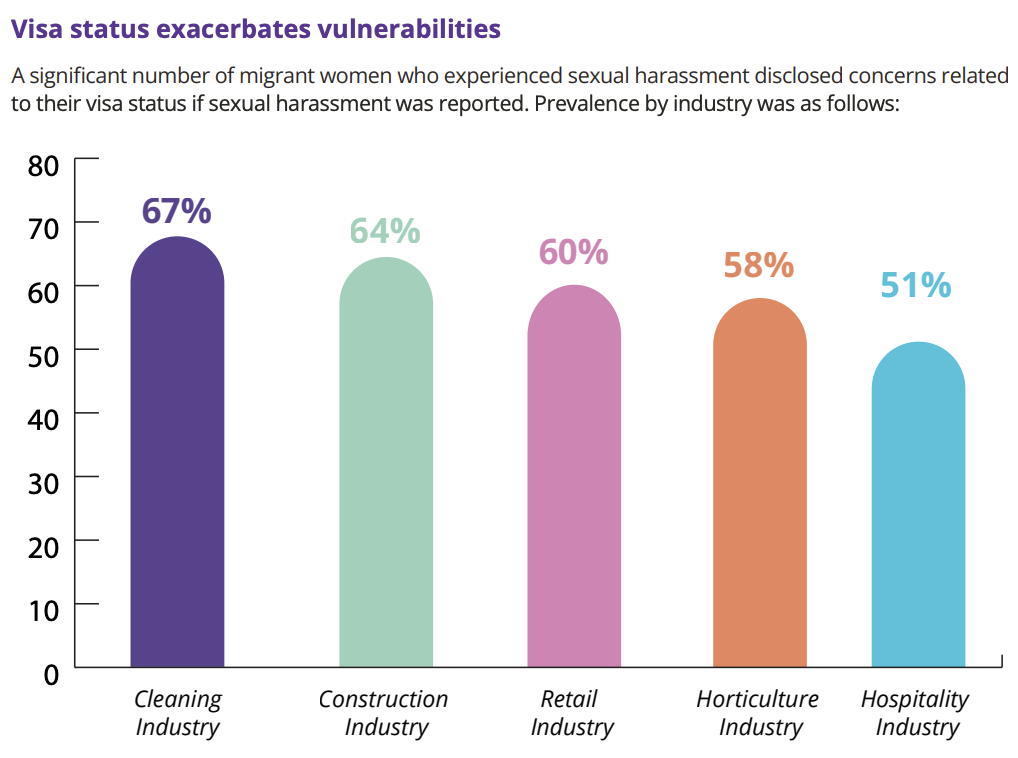
New report reveals widespread underreporting of workplace sexual harassment amid fears of job loss

One in two migrant women on temporary visas have experienced workplace sexual harassment, according to a new report, which uncovered the impact of visa status on employees' vulnerabilities.
The report, released by Unions NSW, polled more than 3,000 migrant women to determine the prevalence of workplace sexual harassment.
It found that 51% of the respondents have experienced sexual harassment at work, with the construction industry taking the lead with 82%. Other industries recorded:
"Migrants come to Australia to seek opportunity but are instead confronted by horrific workplace exploitation," said Unions NSW Secretary Mark Morey in a statement.
"Migrant women are facing sexually suggestive comments, intrusive questions, unwelcome touching and inappropriate physical contact. This is reprehensible. It has to stop."
Despite the prevalence, the survey found that 75% of those who experienced sexual harassment did not report the incident.
The underreporting likely stems from fears that doing so could result in job loss, which has been cited as a reason by 51% of the respondents.
In fact, the report found that a significant number of migrant women who experienced sexual harassment had concerns related to their visa status if they stepped forward with their experience.

Morey said this was an "unacceptable reality for migrant women" who are working for Australia's essential industries.
"They are enduring sexual harassment in silence, feeling pressured to choose between their dignity and their livelihoods," he said.
According to the report, the most common type of harassment experienced by migrant women is receiving sexually suggestive comments or jokes 52%). Other respondents said it was:
Nearly half of the respondents (48%) did not believe their employer was doing enough for their safety, and as a result, quit because they felt unsafe.
To address the problem, Unions NSW called for various reforms such as:
Carrying out regular assessment of the Workplace Justice visa and Strengthening Reporting Protections pilot to ensure they are effectively assisting in reducing the power imbalance that exists between migrant women and perpetrators